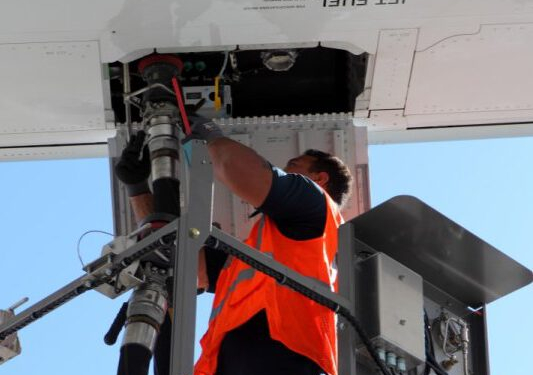Wageningen University & Research (WUR) and its partners have developed a new type of aviation fuel, produced using potato waste streams.
The possibility of making a promising airplane- type of fuel from the waste streams of potato production has already been proven on a lab scale, WUR explains. The BioJet Fuel project, executed from 2017 to 2020 by an international consortium led by Wageningen Food & Biobased Research, aimed to define the conditions necessary to scale this process and achieve a viable production chain for biobased aircraft fuel.
Low-value waste streams
The raw materials used as model in this project are residual streams from potato processing. These streams were used as a raw material for the fermentative production of acetone, butanol and ethanol (ABE fermentation). While the composition of these waste streams makes them suitable for fermentation, they are currently used for low-value applications. Potato waste streams, the feedstock in this project, for example are currently sold as low-value cattle feed, or converted through anaerobic digestion into methane.
Experimental research
In the approach taken in this project, the mixture of ABE that is produced from the substrate is catalytically converted into hydrocarbons and, after hydrogenation and fractionation, into aviation fuel. Through experimental research, the complete production and value chains for the conversion of wet agricultural waste streams into fuel have been shown to be technically feasible. A techno-economic assessment and a life cycle analysis (LCA) of the value chain have also been carried out. Next to the potato waste streams used in this project, a commercial process will also require additional feedstocks, to achieve sufficient volume. Possible feedstocks that meet the criteria are lignocellulosic biomass and waste streams from the paper industry.
New value chains
Locally produced waste streams from the agriculture or food sector can be used as raw materials in the production of advanced biofuels if they meet stringent sustainability conditions. The BioJet Fuel project is evaluating the complete value and production chains of biofuels from wet organic waste streams for the aviation sector (sustainable aviation fuel, or SAF). The results of this project could represent the first step in the creation of new value chains in the Netherlands, in which biomass and waste streams with a high moisture content from the primary agriculture and food industry are used as raw materials for bioprocesses for advanced liquid biofuels, WUR states.







